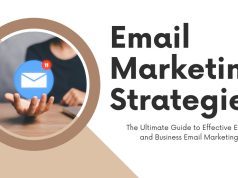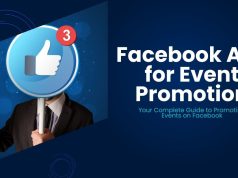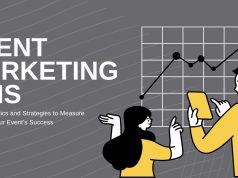Event marketing has evolved from simple networking gatherings into powerful business growth engines. Companies now leverage events to build meaningful connections, showcase their expertise, and drive measurable results. But with so many moving parts, creating a successful event requires strategic planning and flawless execution.
This comprehensive guide will walk you through everything you need to know about event marketing management. You’ll discover proven strategies for planning memorable events, engaging your audience effectively, and measuring success. Whether you’re organizing your first corporate event or looking to refine your existing approach, these insights will help you create experiences that deliver real business value.
What is Event Marketing?
Event marketing is a promotional strategy that involves face-to-face engagement with your target audience through organized experiences. These experiences can range from large-scale conferences and trade shows to intimate workshops and product launches. The goal is to create meaningful interactions that build brand awareness, generate leads, and strengthen customer relationships.
Unlike traditional advertising methods, event marketing allows for direct, personal connections with your audience. Attendees can touch your products, ask questions in real-time, and experience your brand values firsthand. This immediacy creates emotional connections that often translate into stronger business relationships and higher conversion rates.
Modern event marketing extends beyond the physical event itself. It encompasses pre-event promotion, the live experience, and post-event follow-up activities. This holistic approach maximizes the return on investment by creating multiple touchpoints with your audience throughout the entire event lifecycle.
Types of Events for Marketing
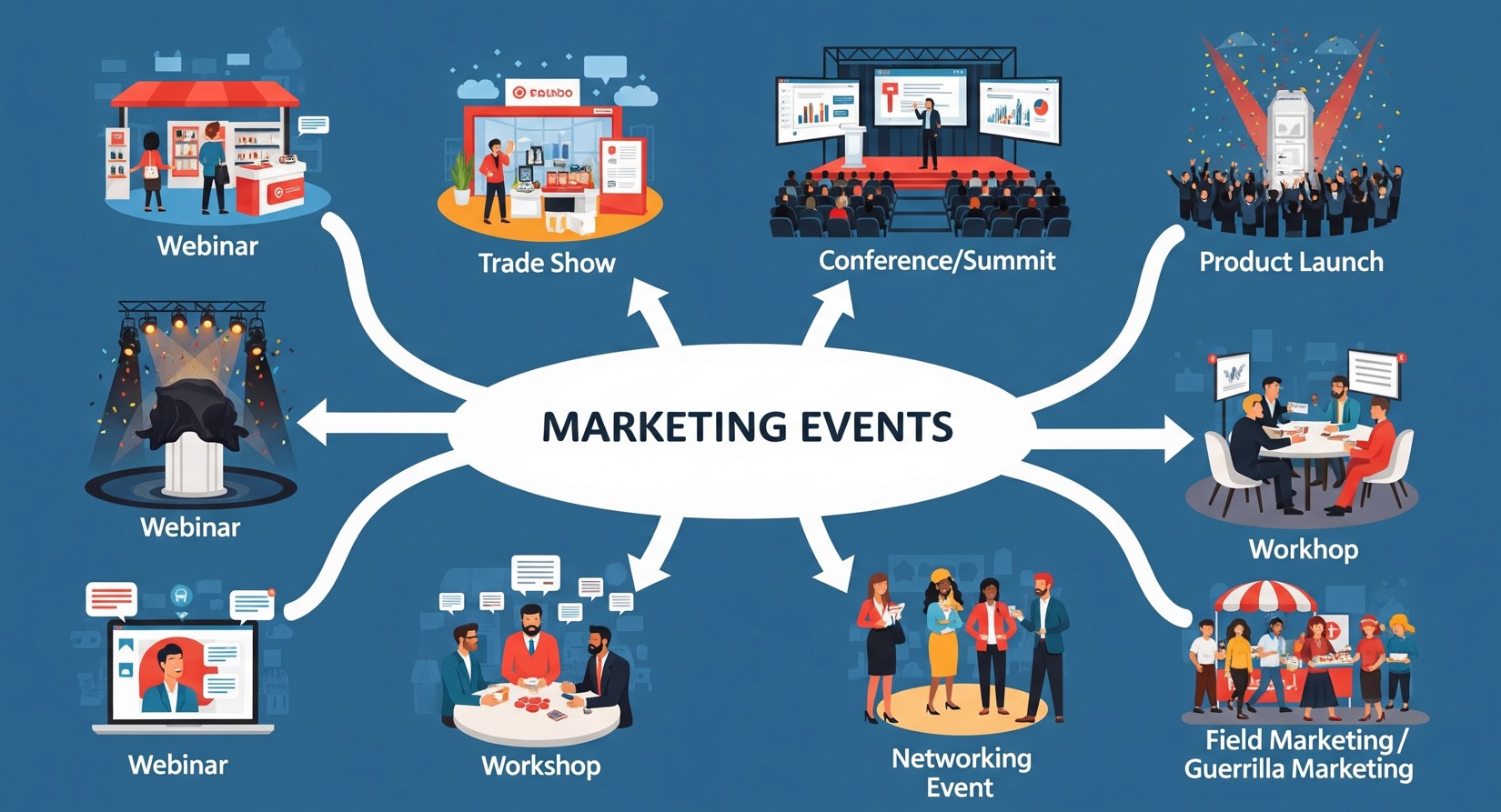
Corporate Events
Corporate events serve multiple business purposes, from internal team building to external client entertainment. These gatherings help strengthen professional relationships while showcasing company culture and values. Popular corporate event formats include annual meetings, award ceremonies, and executive retreats. For detailed tips, see corporate event marketing guide to success.
Success in corporate event marketing depends on aligning the event experience with your company’s brand identity. The venue, catering, entertainment, and messaging should all reinforce your organization’s professional image and core values.
Trade Shows and Conferences
Trade shows and conferences offer unparalleled opportunities to connect with industry peers, potential customers, and thought leaders. These events typically feature exhibition booths, speaking sessions, and networking opportunities that can generate significant business leads.
Effective trade show marketing requires strategic booth design, compelling presentations, and proactive networking. Companies often invest heavily in eye-catching displays and interactive demonstrations to stand out from competitors and attract qualified prospects.
Product Launches
Product launch events create excitement and buzz around new offerings while providing hands-on experiences for key stakeholders. These events allow potential customers to interact with products before they hit the market, generating valuable feedback and early adoption.
Successful product launches combine storytelling with demonstration. They should communicate the product’s unique value proposition while allowing attendees to experience its benefits directly. This combination of emotional and practical appeal often drives stronger purchase intent.
Workshops and Seminars
Educational events like workshops and seminars position your company as an industry expert while providing genuine value to attendees. These intimate gatherings foster deeper relationships with prospects and customers through knowledge sharing and skill development.
The key to successful educational events lies in delivering actionable insights rather than sales pitches. Attendees should leave with practical knowledge they can immediately apply, creating positive associations with your brand and increasing trust in your expertise.
Virtual and Hybrid Events
Digital transformation has expanded event marketing possibilities through virtual and hybrid formats. These events can reach global audiences, reduce costs, and provide detailed analytics on attendee engagement and behavior. For a comprehensive overview, check out the rise of hybrid events and virtual event marketing strategies.
Virtual events require different engagement strategies than in-person gatherings. Interactive elements like polls, breakout rooms, and gamification help maintain attention and encourage participation. Hybrid events combine the best of both worlds, offering flexibility for remote attendees while preserving face-to-face interactions for local participants.
Event Marketing Strategy Development

Define Your Objectives
Clear objectives form the foundation of successful event marketing campaigns. Common goals include lead generation, brand awareness, customer education, product promotion, and relationship building. Each objective requires different strategies, metrics, and resource allocation.
Specific, measurable objectives help guide decision-making throughout the planning process. For example, “generate 100 qualified leads” provides clearer direction than “increase brand awareness.” Well-defined goals also make it easier to evaluate event success and calculate return on investment.
Identify Your Target Audience
Understanding your audience is crucial for creating relevant, engaging experiences. Use audience insights to tailor messaging and content. Social media can help expand reach, see social media event marketing guide.
Create detailed buyer personas for your ideal attendees. These profiles should include pain points, communication preferences, and decision-making processes. Use this information to craft messaging that resonates with your audience and addresses their specific needs.
Set Your Budget
Event budgets typically include venue rental, catering, marketing materials, technology, staffing, and promotional activities. Create detailed budget categories and allocate funds based on your priorities and expected return on investment.
Build contingency funds into your budget for unexpected expenses. Industry experts recommend allocating 10-15% of your total budget for contingencies. Track expenses carefully throughout the planning process to avoid cost overruns that could impact event quality or profitability.
Choose the Right Format and Venue
Event format and venue selection significantly impact attendee experience and engagement levels. Consider your audience’s preferences, geographic distribution, and logistical constraints when making these decisions.
Venue selection should align with your brand image and event objectives. A tech startup might choose a modern co-working space, while a law firm might prefer a traditional hotel conference center. The venue should support your planned activities and provide necessary amenities for attendee comfort.
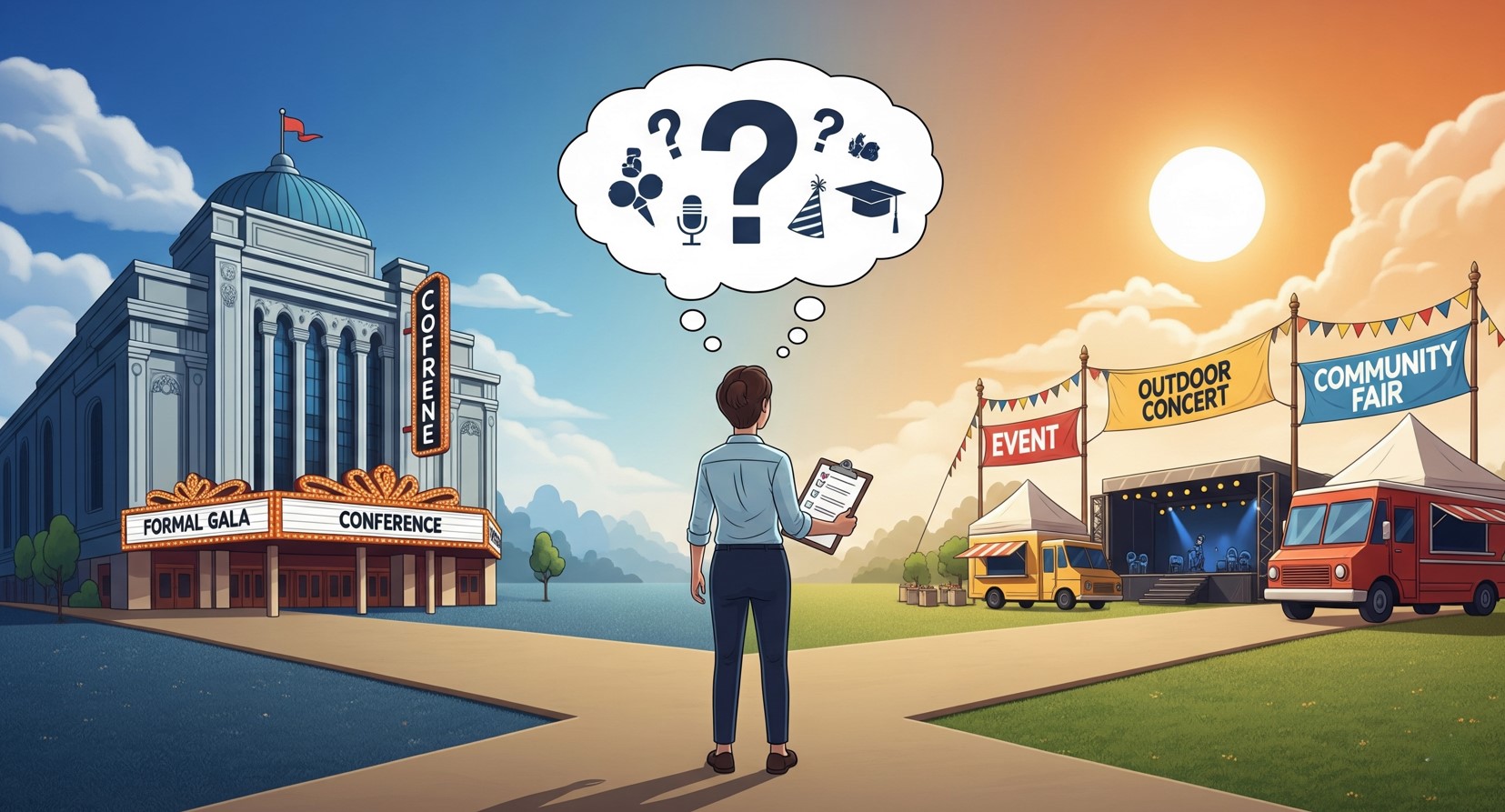
Event Planning and Execution
Create a Timeline
Successful events require months of advance planning. Create a detailed timeline that works backward from your event date, including all major milestones and deadlines. This timeline should cover everything from initial planning to post-event follow-up activities.
Start planning at least 3-6 months in advance for major events. Complex conferences or trade shows may require 12 months or more of preparation time. Break down large tasks into smaller, manageable components with specific deadlines and assigned responsibilities.
Develop Compelling Content
Content is the heart of your event experience. Whether it’s keynote presentations, panel discussions, or interactive workshops, your content should provide genuine value while supporting your marketing objectives.
Mix different content formats to accommodate various learning styles and preferences. Combine presentations with hands-on activities, group discussions, and networking opportunities. This variety keeps attendees engaged and creates multiple opportunities for meaningful interactions.
Networking and Relationship-Building Opportunities
One of the core benefits of event marketing is fostering connections. Structured networking activities, such as speed networking, breakout sessions, roundtables, or matchmaking platforms, help attendees form meaningful professional relationships.
Facilitating interactions between attendees, speakers, and sponsors adds tangible value to the event experience. Encouraging relationship-building through gamification, mobile apps, or curated networking sessions ensures attendees leave with both knowledge and connections, reinforcing loyalty to your brand.
Integrating Content Marketing with Event Strategy

Events and content marketing go hand in hand. Using content to support your event strategy amplifies reach, strengthens messaging, and drives long-term engagement. Blog posts, infographics, videos, podcasts, and social media updates can educate, entertain, and inform potential attendees about the value of attending.
Post-event content is equally important. Recording sessions, creating recap blogs, sharing interviews, or publishing insights from panels can extend the event lifecycle, provide value to those who couldn’t attend, and establish your company as an industry thought leader.
Manage Registration and Communications
Streamlined registration processes reduce friction and improve attendee satisfaction. Use professional event management software to handle registrations, payments, and communications. This technology also provides valuable data about attendee preferences and behavior patterns.
Maintain regular communication with registered attendees before, during, and after your event. Pre-event emails should build excitement and provide practical information. During the event, use mobile apps or social media to share updates and encourage engagement. Post-event follow-up helps maintain relationships and gather feedback.
Coordinate Logistics
Event logistics encompass all the behind-the-scenes details that ensure smooth operations. This includes audio-visual equipment, catering coordination, signage, registration desks, and contingency planning for potential problems.
Create detailed run-of-show documents that outline every aspect of the event timeline. Share these documents with all staff members and vendors to ensure everyone understands their responsibilities. Conduct rehearsals when possible to identify and resolve potential issues before the event begins.
Event Gamification for Engagement
Gamification introduces fun, interactive elements into your events to increase participation and excitement. This can include leaderboards, quizzes, scavenger hunts, virtual challenges, or interactive polls.
By rewarding attendees with points, badges, or prizes, gamification motivates engagement and encourages exploration of different event areas, such as exhibitor booths or breakout sessions. It also fosters a sense of competition and community, making the experience more memorable and shareable.
Crisis Management and Risk Mitigation
Every event carries potential risks, from technical failures to weather disruptions or health emergencies. Effective event marketing management requires a robust crisis management plan to ensure smooth operations.
This includes identifying potential risks, developing contingency plans, training staff on emergency procedures, and having backup technology and vendor support. Preparing for unexpected scenarios reduces disruptions, protects attendees, and safeguards the brand’s reputation.
Post-Event Lead Nurturing
Generating leads is just the first step; nurturing them post-event is essential. Segment leads and personalize follow-ups for maximum conversion. Post-event content can extend engagement. For a seasonal perspective, check all season restaurant market.
Segment leads based on engagement level, industry, or expressed interests during the event. Tailored follow-ups that reference specific event interactions make communication more relevant and increase conversion chances. This continuous engagement ensures your event impact extends beyond a single day.
Measuring Event Marketing Success
Key Performance Indicators
Track metrics that align with your event objectives. Lead generation events should measure qualified leads, conversion rates, and pipeline contribution. Brand awareness events might focus on reach, engagement, and sentiment metrics.
Common event marketing KPIs include attendance rates, engagement levels, lead quality scores, social media mentions, and post-event survey results. Establish benchmark metrics before your event to help evaluate performance and identify improvement opportunities.
ROI Calculation
Calculate return on investment by comparing total event costs against quantifiable benefits. This might include immediate sales, qualified leads valued at average deal size, or customer lifetime value increases from strengthened relationships.
Include both hard and soft benefits in your ROI calculations. While immediate sales are easy to measure, brand awareness improvements and customer satisfaction gains also contribute to long-term business success.
Post-Event Analysis
Conduct thorough post-event analysis to identify successes and improvement opportunities. Gather feedback from attendees, staff members, and vendors through surveys, interviews, and informal discussions.
Document lessons learned and best practices for future events. This knowledge base helps improve planning efficiency and event quality over time. Share insights with your team and stakeholders to demonstrate value and inform future event strategies.
Making Your Next Event a Success
Event marketing management requires careful planning, strategic thinking, and attention to detail. The most successful events combine clear objectives with engaging experiences that provide genuine value to attendees.
Start planning your next event by defining specific, measurable goals that align with your business objectives. Research your target audience thoroughly to understand their needs, preferences, and motivations. Use this knowledge to create compelling content and experiences that resonate with your ideal attendees.
Remember that great events don’t happen by accident. They result from systematic planning, creative thinking, and flawless execution. Invest in professional event management tools and consider partnering with experienced vendors who can help bring your vision to life. With the right approach, your events will become powerful drivers of business growth and customer engagement.
Frequently Asked Questions (FAQ)
What is the main goal of event marketing?
The main goal is to create meaningful interactions with your audience that build brand awareness, generate leads, strengthen customer relationships, and drive measurable business results.
How do virtual and hybrid events differ from traditional in-person events?
Virtual events take place entirely online, allowing global participation, while hybrid events combine both physical and virtual elements. Both formats require specific engagement strategies to maintain attention and interaction.
What are the key metrics to measure event success?
Common metrics include attendance rates, engagement levels, lead generation, social media activity, post-event survey results, and ROI calculations that compare costs to tangible business outcomes.
How can storytelling improve event marketing?
Storytelling helps humanize your brand, makes content memorable, and fosters an emotional connection with attendees. Sharing real customer experiences or brand narratives increases trust and loyalty.
Why are partnerships and sponsorships important for events?
They amplify your event’s reach, provide credibility, offset costs, and open access to new audiences. Strategic collaborations can enhance engagement and create mutually beneficial marketing opportunities.
How can technology enhance event marketing?
Technology streamlines registration, manages logistics, facilitates attendee engagement, and provides data analytics for measuring success. AI, mobile apps, and virtual platforms enable personalized experiences and actionable insights.


